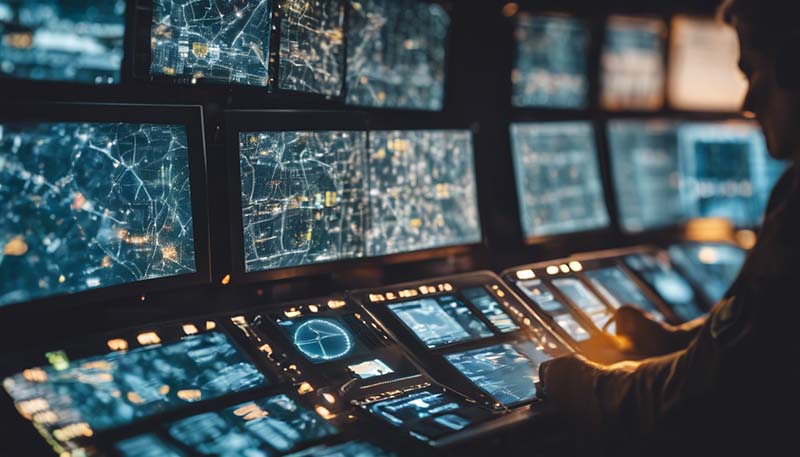The rapid development of artificial intelligence (AI) has significantly impacted various industries in recent years, and the field of air traffic control is no exception. With the increasing demand for air travel and the growing number of flights worldwide, the need for efficient and accurate air traffic management has become more critical than ever. This article explores the various ways in which AI is revolutionizing air traffic control, improving safety, and optimizing operations.
1. Improved Air Traffic Management
Traditional air traffic control relies heavily on human operators, who are responsible for managing the movement of aircraft on the ground and in the air. However, the limitations of human cognitive abilities and the increasing complexity of air traffic systems have led to the need for more advanced solutions. AI-powered systems can analyze vast amounts of data in real-time, providing air traffic controllers with accurate and up-to-date information about the positions, speeds, and trajectories of aircraft. This enables controllers to make better-informed decisions and manage air traffic more efficiently.
Advertisement
2. Enhanced Safety Measures
One of the primary concerns in air traffic control is ensuring the safety of passengers and crew members. AI can play a crucial role in identifying and mitigating potential risks by analyzing historical data and predicting future events. For example, AI algorithms can detect patterns in flight data that may indicate an increased likelihood of accidents or incidents, allowing controllers to take preventive measures. Additionally, AI-powered systems can assist in the detection and tracking of potential collision courses, enabling controllers to issue timely warnings and avoid mid-air collisions.
3. Reduced Air Traffic Delays
Air traffic congestion and delays have become a significant issue for passengers and airlines alike. AI can help alleviate this problem by optimizing flight paths and schedules. By analyzing historical and real-time data, AI algorithms can predict traffic congestion and suggest alternative routes or adjustments to flight schedules. This not only reduces the time spent in the air but also minimizes fuel consumption and lowers greenhouse gas emissions.
4. Autonomous Air Traffic Control
The ultimate goal of AI in air traffic control is to achieve full autonomy, where AI-powered systems can manage the entire air traffic network with minimal human intervention. This would significantly reduce the workload on air traffic controllers and allow them to focus on more complex tasks, such as handling emergencies or coordinating with other agencies. While fully autonomous air traffic control systems are still in the development phase, the integration of AI technologies in this field is already providing valuable assistance to human operators.
5. Training and Simulation
Another area where AI is making a significant impact is in the training and simulation of air traffic controllers. AI-powered simulation systems can create realistic and dynamic environments that closely mimic real-world scenarios, allowing controllers to gain valuable experience and improve their decision-making skills. Moreover, AI can analyze the performance of trainees and provide personalized feedback, helping them to identify areas for improvement and enhance their overall proficiency.

6. Challenges and Ethical Considerations
While the integration of AI in air traffic control offers numerous benefits, it also presents some challenges and ethical concerns. One of the primary concerns is the potential loss of jobs for human air traffic controllers, as AI systems become more capable and efficient. Additionally, there are concerns about the reliability and security of AI-powered systems, as well as the potential for biases in AI algorithms that could lead to unfair or discriminatory outcomes.
Conclusion
In conclusion, the impact of artificial intelligence on air traffic control is profound and far-reaching. By improving air traffic management, enhancing safety measures, reducing delays, and offering the potential for autonomous control, AI is revolutionizing the way we manage the skies. While there are challenges and ethical considerations to address, the benefits of AI in air traffic control are undeniable and will continue to shape the future of this critical industry.